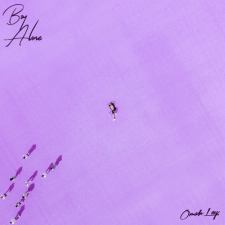
Best New Music: Omah Lay’s “temptations” Is A Masterpiece of Romantic Tussle
at his introspective best

at his introspective best
Melancholy is an important element of popular music. Beyond the catchy groove of strong hit songs, a wave of sadness can affect deeply lasting emotions. To tap into specific memories though, the singer has to shed the mystery of whatever hard exterior they wear. Through this very hard process, classic songs are birthed, and transcendental moments recorded.
View this post on Instagram
Among the new vanguard of Afropop stars, few bleed their heart’s content as keenly as Port Harcourt-born artist, Omah Lay. It seems to be the musician’s default mode, an introspective poet streaked with bad boy tendencies. His breakout record “Bad Influence,” spawned off a one-minute clip on Instagram, went on to become one of the 2020’s biggest hits. And perhaps contributing the most to that acclaim was its peculiar leaning towards the zeitgeist, coming at a time when love was rare and physical touch even rarer in 2020.
Over the weekend, Stanley Omah Didia released the much-touted ‘Boy Alone.’ The debut album was among our editorial team’s fourteen anticipated projects of the year, ostensibly because of the singer’s increasing profile across two EPs. Before now, he’s been in splendid form, releasing the singles “Understand” and “Attention.” The latter featured Canadian superstar Justin Beiber and was his biggest hit going into a global tour he’s embarked on since the start of this year.
As you’ll expect, ‘Boy Alone’ is a tender and conflicting album. It is full of standouts across the 14-track album, but “temptations” is an obvious standout. In between “i’m a mess” and “understand,” its slowed pacing allows Omah Lay the ease to burst with emotive and real-sounding lyrics. An ode to a lover, he charts the severity of his actions and how she still held him down. “How do you love like that? Your eyes no dey dry water,” he sings matter-of-factly in the first verse, not a stranger to how typical it would be for the person to just up and go, rightfully choosing to sidestep the toxicity.
There are thematic parallels with “Damn” but the Port Harcourt-raised Omah Lay manages more to reign in more sensitivity here. “In all of these temptations wey dey inside my life, you still hold me strong,” he recalls honestly on the hook, while warm percussion and brooding keys build around him. He packs a lot in the second verse, going from religious to familial conflict with druggy exhaustion. “Cannot deny that I got issues sadly,” he admits, and though he doesn’t bother to tidy up the narrative–thankfully, that is–there’s a sense he’s working towards becoming a better man.
In modern Nigerian relationships where breakfast has become a slang for heartbreak, “temptations” offers a nuanced contribution, even if solely from a masculine perspective. Although it’s not the full picture, on its own the record is remarkably poignant and progressive, and further solidifies Omah Lay among the biggest conversation drivers for his generation.

